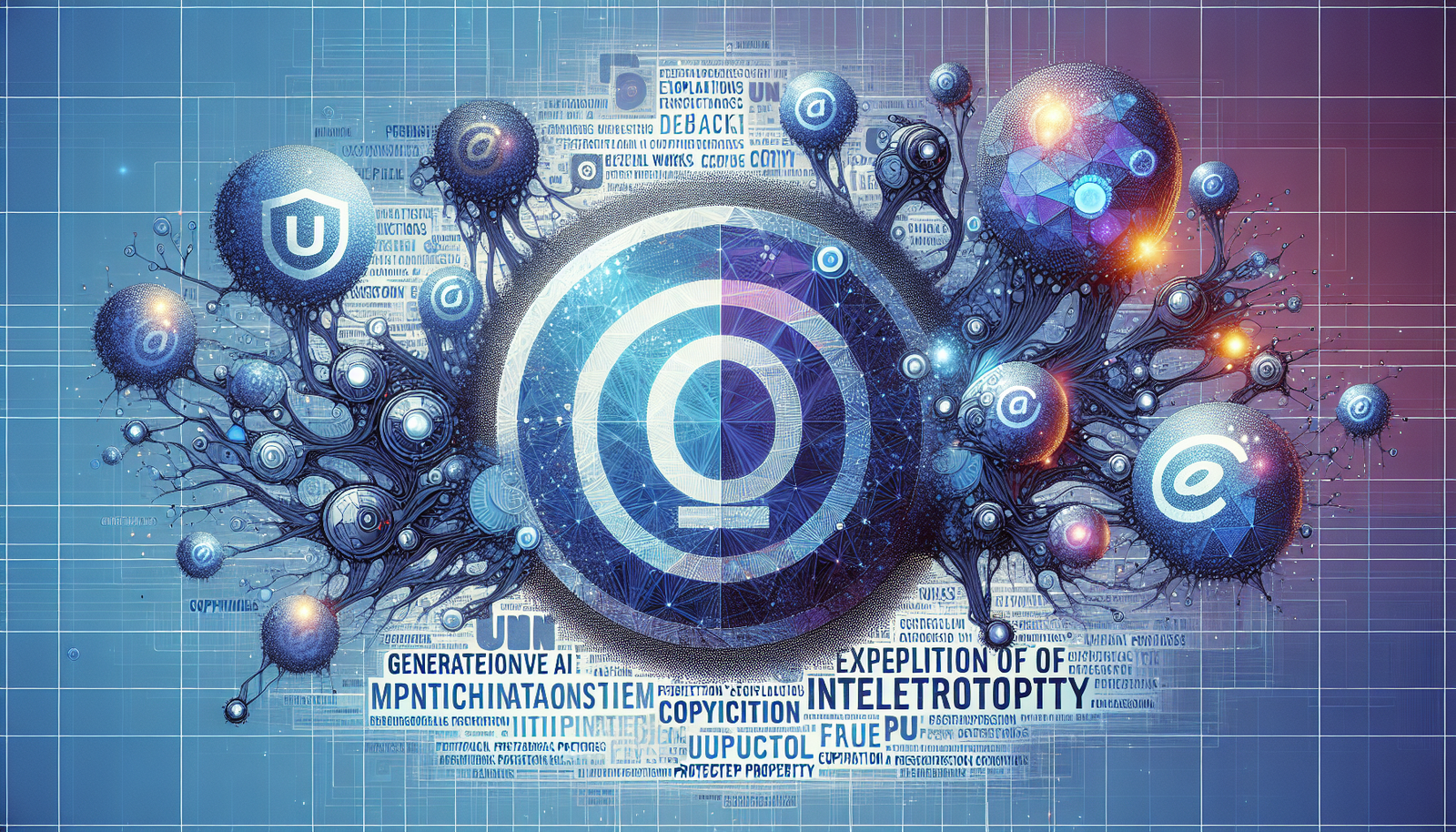Generative AI is redefining the boundaries of artistic creation. French unions, united in defending copyright, expose the abuses of Meta. Insidious exploitation of protected works threatens our cultural heritage. Growing concerns arise over the non-consensual use of creations by artificial intelligence models. Questions intensify: what protections against counterfeiting and economic parasitism? Legal and ethical mobilizations unveil themselves in a fierce battle for the future of intellectual property.
The Exploitation of Protected Works by Meta
Authors’ and publishers’ unions in France are raising their voices against Meta, the American tech giant, accused of copyright infringement. This lawsuit arises from the massive use of protected works without the consent of the authors. Organizations such as the National Publishing Union (SNE) and the Society of People of Letters (SGDL) emphasize the need to protect intellectual property.
Authors’ Right of Opposition
Since February 2025, French authors can exercise their right of opposition (“opt-out”) against the giants of artificial intelligence. This measure allows them to inform Meta and other companies of their refusal to use their works for commercial purposes. This right of opposition is becoming an essential tool in the fight to preserve creators’ rights.
Accusations of Counterfeiting and Economic Parasitism
The legal actions taken by the unions are based on accusations of counterfeiting and economic parasitism. Meta is accused of incorporating a vast corpus of works subject to copyright into its generative AI models without the creators’ permission. This abusive exploitation is causing a real uproar within the artistic community.
Prospects for Collaboration with AI Giants
However, a certain irony emerges from the unions’ statements, which do not seem completely opposed to future collaborations with AI companies. Like the press, which has negotiated partnerships with OpenAI, monetization pathways could emerge. Thus, publishing is considering contracts to enhance access to works in this new digital era.
The Legal Fight for the Protection of Works
In the context of this legal battle, the unions are considering ways to gather evidence of unauthorized exploitation of works by various artificial intelligence models. The idea is to prove that the use of protected works constitutes a direct infringement of the patrimonial and moral rights of authors, according to the provisions of the French Intellectual Property Code.
Implications for the Future of Artistic Creation
The rise of generative AI tools raises profound questions about how artistic creations are conceived and used. The challenges surrounding the respect and valorization of copyright highlight the need to adapt the legal framework to new technological realities. The unions emphasize the importance of establishing constructive dialogues to preserve human creativity while integrating innovation.
The Global Context of Generative AI
Debates about copyright in the context of AI are not limited to France. On an international scale, lively discussions are taking place regarding the impact of AI on creativity and originality. Events such as the 2025 AI Summit in Paris are expected to address the persistent tension between technological innovation and the protection of artists’ rights.
The stakes of generative AI reveal a mutability of the relationships between creators and technologies. In an environment where automation and artificial intelligence redefine the contours of cultural creation, the fight for copyright appears more relevant than ever.
Frequently Asked Questions about Generative AI and Intellectual Property
What is generative AI and how is it related to intellectual property?
Generative AI refers to artificial intelligence technologies that create new content (texts, images, music, etc.) based on pre-existing data. Its link to intellectual property lies in the use of these protected works, raising ethical and legal questions about exploitation without the creators’ permission.
What is the position of French unions on the use of protected works by Meta?
French unions, including the National Publishing Union and the Society of People of Letters, denounce the unauthorized use of protected works by Meta, calling it counterfeiting and economic parasitism. They demand respect for copyright and have initiated legal proceedings against the tech giant.
How can authors exercise their right of opposition concerning their works?
Since February 2025, French authors have the option to exercise their right of opposition (“opt-out”) by informing AI companies, such as Meta, that they oppose the use of their works in training AI models.
Which articles of the Intellectual Property Code are invoked by the unions?
The unions refer to articles of the French Intellectual Property Code, notably articles L. 111-1 and following, which mention the patrimonial and moral rights of authors, stating that their consent is required for the use of their works.
Has Meta reacted to the accusations made against it by French authors and publishers?
To date, Meta has not formally commented on the allegations of copyright infringement. However, in light of the rising criticism and legal actions, it is likely that the company is reviewing its practices regarding the use of protected content.
What are the potential impacts of these legal actions on the future of generative AI in France?
The legal actions taken by the unions could redefine the conditions for using protected content by generative AI, necessitating the establishment of more transparent and remunerative partnerships between AI companies and creators to respect copyright.
Are there examples of collaborations between publishing and AI companies?
Yes, some organizations, such as press publications, have already negotiated partnerships with AI companies, such as OpenAI, to find ways to monetize access to their works while respecting copyright.
How can authors and publishers protect themselves against abusive exploitation of their works by AI?
Authors and publishers can defend themselves by registering their works with the relevant bodies, using precise licensing clauses in their contracts, and staying informed about legislative developments regarding AI and intellectual property.






